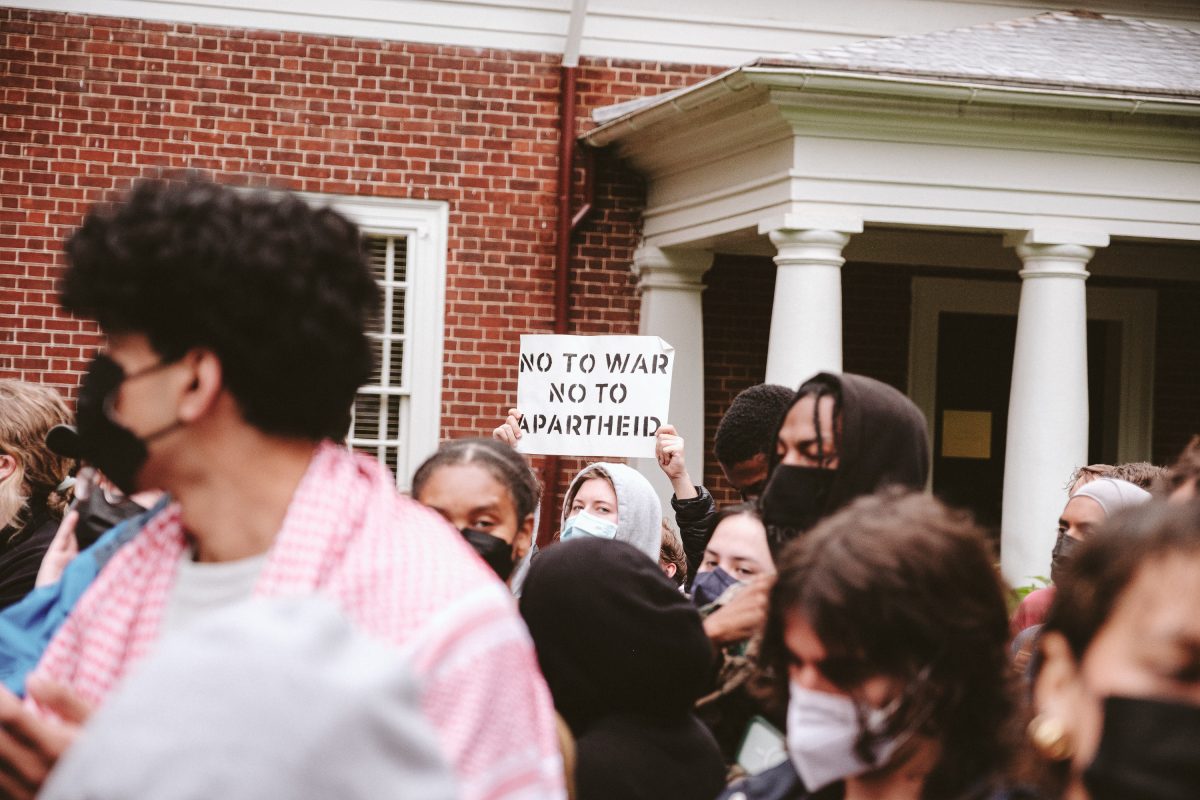Charges against student protesters arrested May 4 have been dropped, but the University of Virginia continues to grapple with protections for and restrictions on freedom of speech. While celebrating its status as the No.1 campus for free speech in the nation, UVA is cracking down on students’ ability to demonstrate on Grounds.
Prior to the start of fall semester, the university updated its rules governing “demonstrations and access to shared spaces” on Grounds. Through these changes, UVA has not only deemed any form of encampment against university policy, but outlined a willingness to escalate to trespass warnings and arrest for noncompliance.
Key changes to demonstration policy include: expanding the definition of the Academical Village, which is subject to additional demonstration restrictions; banning outdoor events on Grounds, including demonstrations, between 2 and 6am; prohibiting camping, with or without a tent, in outdoor spaces; prohibiting sleeping outside between midnight and 6am; and requiring any person wearing a face covering to provide identification if requested by a UVA official.
Students who fail to comply with UVA policy after being informed of a violation can face disciplinary action including “the issuance of an interim suspension by Student Affairs and a trespass warning by law enforcement. Failure to abide by the trespass warning will result in arrest. Every reasonable effort will be made to resolve the matter at the lowest possible level without the involvement of law enforcement.”
UVA’s policies on protests, demonstrations, and gatherings on university property, which include potential consequences for policy violations, can be found at freespeech.virginia.edu/policies-regulations.
Earlier this month, UVA officials demonstrated a willingness to both enforce these new policies and call university police for peaceful noncompliance. According to The Daily Progress, on September 12, Associate Vice President for Student Affairs Marsh Pattie informed students on the Lawn making signs calling for divestment that their use of a folding table violated policy, and asked a student wearing a mask to provide ID.
When the student did not identify themself, Pattie threatened to contact university police. The situation deescalated when the student left the area and the table was taken down. The table was briefly set up again in front of a Lawn room with the permission of its resident, but was deconstructed again when Pattie returned with another official.
In the midst of the implementation of new rules and a crackdown on peaceful organizing, UVA was named the top college for free speech in the nation on September 5 by the Foundation for Individual Rights and Expression.
“FIRE considered several factors, including students’ perceived ability to have difficult conversations, their comfort expressing views on controversial topics and perceptions of their administration’s support for free speech,” wrote University News Senior Associate Jane Kelly in a UVAToday article highlighting the announcement. “The top-ranked colleges have the highest average score among all students surveyed and have the most open environments for free speech.”
For student and faculty organizers, the announcement, and UVA’s public celebration of free speech on Grounds, was deeply ironic.
“If they’re so proud of [the FIRE ranking], then I think [UVA] should roll back the new protest guidelines and start to really listen to faculty and students,” said Laura Goldblatt, assistant professor and faculty liaison for pro-Palestine student protesters, in an interview with C-VILLE. “If they’re so proud of their rankings, then they should follow through on the actions that those rankings might require of them. Instead of using them as a publicity tool, they should use them as a way to guide their decisions about policy.”
Calculated through more than 58,000 surveys, FIRE’s 2025 College Free Speech Rankings considered data collected from students between January 25 and June 17 this year. Beyond surveys, schools were not further penalized for actions related to encampment protests, according to Chief Research Advisor Sean Stevens.
“This decision was made because many schools were likely dealing with a complicated mix of protected and unprotected speech, so accurately adjudicating each individual incident that may or may not have made one of our databases would’ve been impossible,” said Stevens in an email. He further highlighted a footnote from the report, noting that, “The impact of the encampment protests on the campus speech climate is captured by responses to survey questions that ask students about their confidence that their college administration protects speech rights on campus, their comfort expressing controversial political views, and how frequently they self-censor. Deplatformings that occurred during the encampment protests were also still included in the calculation of the 2025 College Free Speech Rankings.”
Laura Beltz, director of policy reform for FIRE, said UVA’s updated demonstration policies will be reviewed as part of the nonprofit’s annual speech code report in January.
